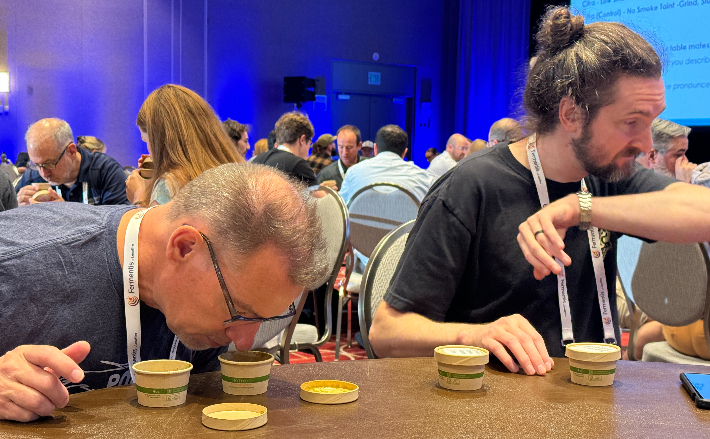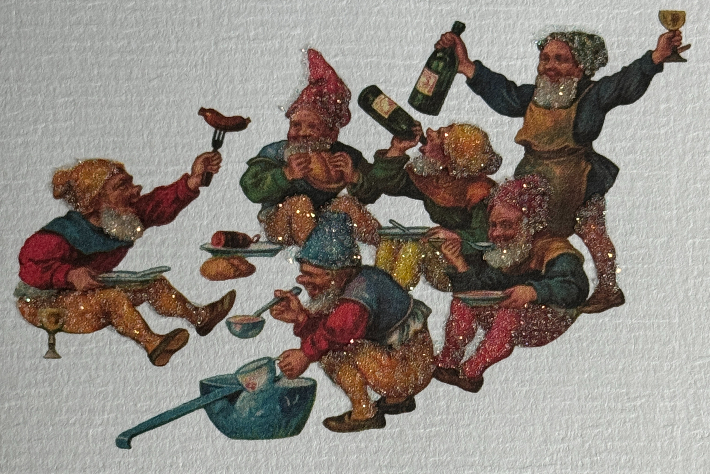
Greetings from Minneapolis, where the World Brewing Congress will continue through Tuesday. The photo above was taken during a smoky hop preparedness workshop.
Today there will be three presentations related to making sure non-alcoholic beers are safe to drink. This is important and was already on my radar when I read “How Mash Gang is Breaking the Alcohol Free Mould.” That is not to imply that Mash Gang beers are not safe, or that the story should address what the company is doing to assure the beers are free of pathogens. It simply reflects my current fascination with what brewers might do to make non-alcoholic beer better without the many useful functions ethanol performs. One of those is making beer safer to drink.
I’ve written about how adding hop character may make NABs taste better and about putting flavors back into NABs that may be lost in the production process. Both stories are behind the same paywall, but the list of benefits alcohol provides appears before you hit the wall, so to speak, in the second.
Making flavorful beer without the help of alcohol, and often without got-to-love-them compounds that result from the fermentation process, is hard. Shouldn’t the challenge appeal to a crafter of crafts?
Granted it is better to start the Mash Gang story at the beginning, but it really kicked in here:
